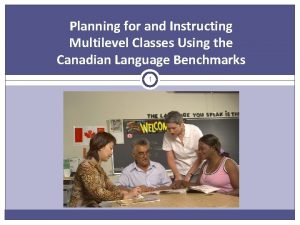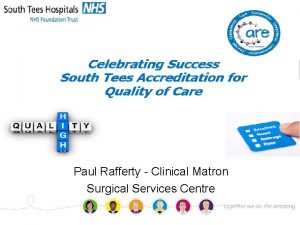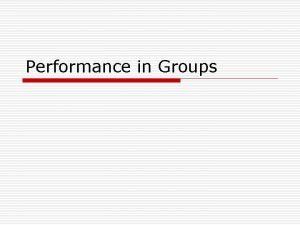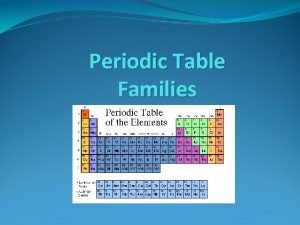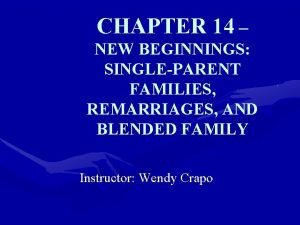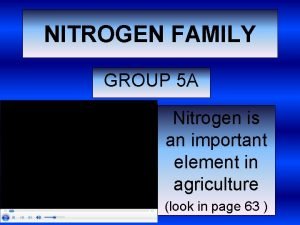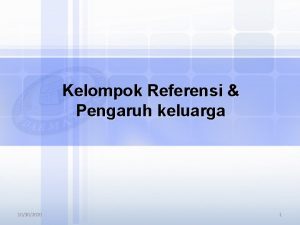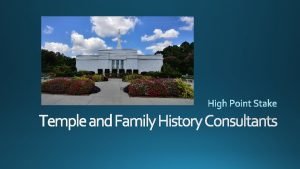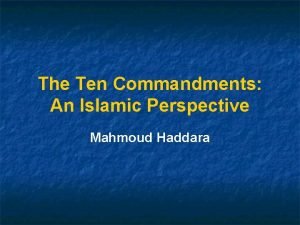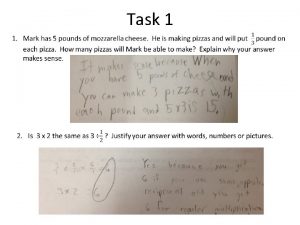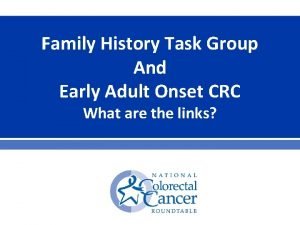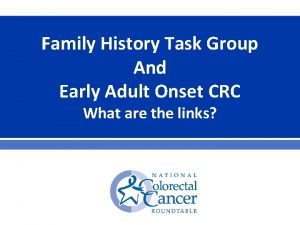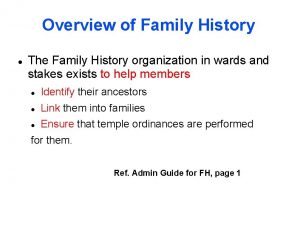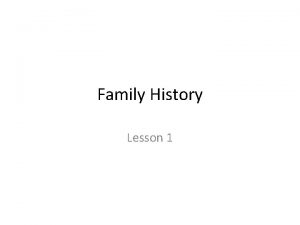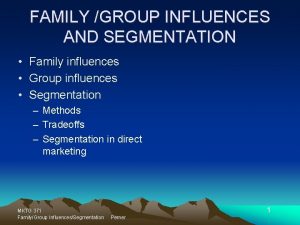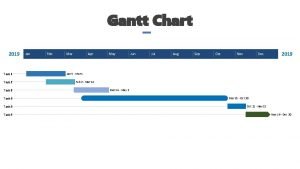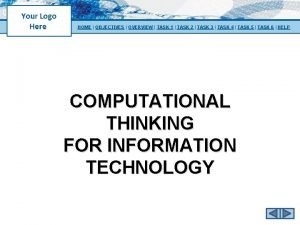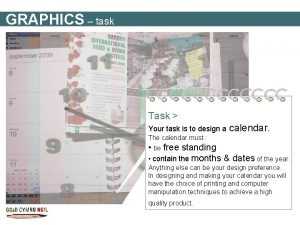Family History Task Group Family History Task Group














- Slides: 14

Family History Task Group

Family History Task Group t Founded in 2012 t The charge of this Task Group is to identify key issues and areas of need around family history and colorectal cancer and identify opportunities for the Roundtable to be a catalyst for change.

Guiding Principles • Persons with a family history of CRC or advanced adenomas have increased risk for CRC, yet are not adequately screened per consensus guidelines. • PCPs and specialists alike often lack the necessary knowledge and risk assessment skills to accurately identify and screen patients at increased risk, particularly those with HNPCC. • Existing EHRs generally lack the appropriate functionality to enable users to accurately document FHx or provide actionable recommendations for appropriate screening. • Risk communication between providers and patients, as well as between affected patients and their relatives is generally poor.

Family History Task Group Accomplishments

Hosted FH Symposium on Sept 23, 2014 – 34 attendees, including many renown experts in the field – Goals: • Review state-of-the-science- risk, screening guidelines, rates, barriers, interventions • Recommend research priorities • Determine critical next steps to increase screening rates in high-risk individuals – Key take-home messages • Need to enhance the capability of EHR systems for collecting FH data in standardized formats and linking them with clinical decision making; • Need for provider education and risk assessment tools to facilitate identification and appropriate management of patients at increased/high risk; • Outreach to survivors provides a key yet underutilized link to high risk families. o Tools to help survivors communicate risk to their families. o Guidelines for educating patients about talking to their doctors regarding colorectal cancer.

Hosted EHR Meeting (9/29/15) Objectives: Develop consensus statement, core components and outline NCCRT Strategy on improving FH collection in EHRs Issues from Family History perspective: – EHR data is collected in a variable manner • What is goal of FH component of EHR? • What are the minimal data elements? • How should they be collected? – No link between family history data in EHR and clinical decisions • What types of linkage? • Potentially work with vendors

Drafted a “state-of-the science” manuscript – – Lead author: Jan Lowry (U. Colorado) Provides a comprehensive review of the literature and identifies key gaps in research to 6 key questions: 1. What are the risks for CRC associated with family history? 2. What are the existing screening recommendations for persons with a family history of CRC? 3. What are the rates of adherence to screening recommendations among persons with a family history of CRC? 4. What are the known predictors and barriers to screening among persons with a family history of CRC? 5. What interventions to improve screening in high risk persons are effective? 6. What family history screening tools are currently available for use in clinical or public health practice? − Draft accepted for publication in Cancer

Drafted a “state-of-the science” manuscript – Key Priorities • Improve how we collect and utilize cancer FH information. • Establish consensus across organizations for CRC screening guidelines by FH status. • Enhance provider-patient knowledge of guidelines and communication about CRC risk. • Encourage cancer survivors to promote screening within their families, and partner with existing CRC screening programs to expand reach to high-risk groups.

Family History Task Group Next Steps

State-of- Science Paper: Which recommendations should we act on? • • #1: Establish a standardized, core set of data items for collecting cancer family history directly into EHRs, or integrating these into EHRs from family history tools. #2: Require collection and updates of family history as a quality metric in primary care. #3: Catalyze an effort to come to consensus on screening guidelines for individuals with a single FDR with CRC > age 60. #4: Conduct additional studies to assess risk of CRC associated with a family history of adenomas (specified according to size, histology of polyp), and efficacy of interval screening in persons at increased risk. #5: Educate primary care providers on appropriate application of guidelines for high risk patients. #6: Develop standard reporting metrics for disclosing endoscopy findings (specifically information about polyps) and screening recommendations for at-risk relatives to patients. #7: Collaborate with national/local organizations that promote and/or monitor CRC screening (ex. CRCCP, NCCRT, BRFSS, NHIS) to include high risk groups. #8: Enlist efforts from survivor groups and state cancer registries to promote CRC screening in family members of persons affected by CRC.

Survivor/High Risk Family Outreach – Working collaboratively with Jasmine Greenamyer (CCA) – Drafted a simple, prescriptive message for patients w/ cancer diagnosed before age 60 – Key themes: • FDRs at increased risk • Need to begin screening w/ colonoscopy earlier (≤ age 40) • Notify at-risk relatives and encourage screening especially if 40+ years of age

Survivor/High Risk Family Outreach – Finalize the united risk communication message for patients under 60. – Identify channels and strategies for delivery • • Survivors Clinicians/endoscopists Cancer Care Plan Cancer Registries

Professional Education • Short Term Goals: – – • Create a one-page “Clinician Reference” on familial/heritable risk. Create templates for endoscopists to communicate screening recommendations for at-risk relatives of patients with CRC and advanced adenomas. Long Term Goals: – – Create a toolkit and best practices guide for Familial and Hereditary CRC. Explore strategies for educating medical students and residents about the importance of family history, risk assessment and existing guidelines.

EHR Project • Immediate Next Steps – Revise the Delphi survey based upon feedback from participants. • Short Term Goals – Disseminate the Delphi survey to a broader audience (e. g. Primary Care) and reach consensus on goals, key data elements and desired decisional support for a high quality EHR. – Continue to work collaboratively with CHC and Prof Ed Task Groups develop a strategic plan for engaging EHR vendors. • Long Term Goal – Collaborate with key EHR vendors to forge a commitment to enhance the functionality of their products related to familial risk assessment, documentation and decisional support.
 Tiered task bias task
Tiered task bias task Ward accreditation meaning
Ward accreditation meaning Reciprocal model of social group work
Reciprocal model of social group work Disjunctive tasks meaning
Disjunctive tasks meaning Born with a mic flocabulary
Born with a mic flocabulary Conclusion on topic family
Conclusion on topic family Varies from family to family on the periodic table.
Varies from family to family on the periodic table. Blended family vs binuclear
Blended family vs binuclear Family group periodic table
Family group periodic table Family or group of nitrogen
Family or group of nitrogen Family guy air dates
Family guy air dates Family or group of oxygen
Family or group of oxygen Kelompok referensi komparatif
Kelompok referensi komparatif Temple family history consultant
Temple family history consultant Mahmood haddara
Mahmood haddara
